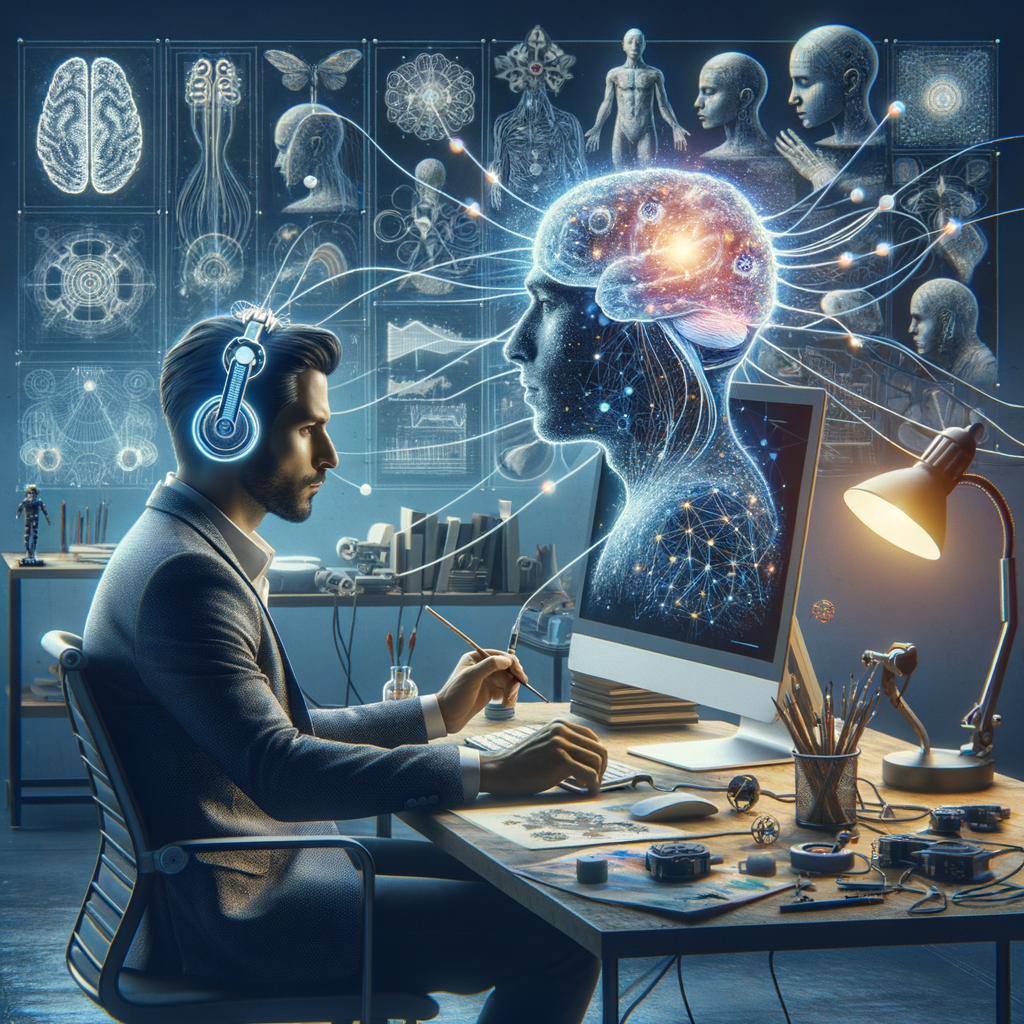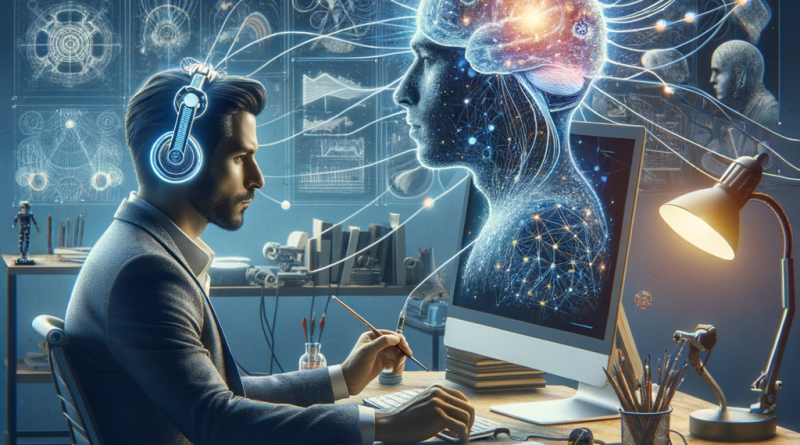The Future of AI and Brain Computer Interfaces in Human Cognition

“`html
The Automation of Thinking: AI’s Revolutionary Role in Human Cognition
Technology is advancing faster than ever, and artificial intelligence (AI) continues to reshape how we interact with the world. One of the most fascinating areas of AI development right now is the integration of AI with Brain-Computer Interfaces (BCIs). These systems aim to merge human cognition with computers, creating new ways to interact with technology—sometimes without even needing physical input.
Brain-Computer Interfaces and AI: The Cutting Edge
Imagine a world where you’re able to control a computer, compose an email, or browse the web using only your thoughts. While this may sound like science fiction, AI-powered BCIs are making it a reality.
Current Applications
- Medical Use Cases: Patients with severe paralysis are gaining independence by controlling prosthetic limbs or communicating via thought-to-text conversion.
- Enhanced Productivity: BCI-enabled AI can detect when users lose focus and automatically adjust their environment—reducing distractions and improving efficiency.
- Neural Pattern Recognition: Some advanced BCIs analyze thought patterns to predict a user’s needs, helping to automate complex workflows.
Baidu Enters the AI Price War
Another major shift in AI is happening in the global AI economy. Baidu recently introduced two models, ERNIE 4.5 and ERNIE X1, which they are pricing dramatically lower than competitors like OpenAI and DeepSeek.
| AI Model | Comparison | Price |
|---|---|---|
| ERNIE 4.5 | Competes with GPT-4.5 | 1% of GPT-4.5’s cost |
| ERNIE X1 | Similar to DeepSeek’s R1 | 50% less expensive |
With AI costs dropping dramatically, businesses and individuals may soon have access to more powerful AI models at lower costs, spurring faster innovation across industries.
Trending AI Technologies
Aside from brain-computer interfaces and AI pricing wars, here are some of the latest AI tools making waves:
- OnlyBots: A social network purely for AI chatbots.
- Lalal AI: AI that separates vocals and instruments in audio files.
- Flot AI: AI that integrates seamlessly across apps and remembers data.
Conclusion: The Future of AI in Everyday Life
With AI advancing in so many directions—from thought-controlled interfaces to competitive pricing—it’s clear that AI will become even more integrated into our daily lives. Whether helping those with disabilities or enabling businesses to automate operations, AI is pushing the boundaries of what’s possible.
As these technologies improve, expect to see even greater automation of cognitive processes, giving humans the ability to interact with machines in ways we never imagined.
#AI #AIInnovation #BrainComputerInterface #FutureTech #Automation #ArtificialIntelligence
“`
